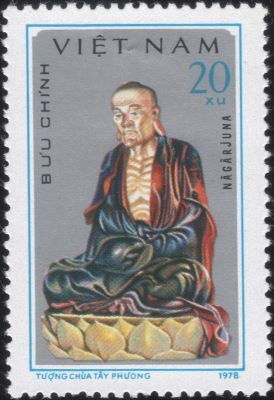
The great Buddhist saint Nagarjuna moved around naked except for a loincloth and, incongruously, a golden begging bowl gifted to him by the King, who was his disciple.
One night he was about to lie down to sleep among the ruins of an ancient monastery when he noticed a thief lurking behind one of the columns.
“Here, take this,” said Nagarjuna, holding out the begging bowl. “That way you won’t disturb me once I have fallen asleep.”
The thief eagerly grabbed the bowl and made off — only to return next morning with the bowl and a request. He said, “When you gave away this bowl so freely last night, you made me feel very poor. Teach me how to acquire the riches that make this kind of light-hearted detachment possible.”
Nagarjuna (c. 150 – c. 250 CE) is widely considered one of the most important Buddhist philosophers. Along with his disciple Aryadeva, he is considered to be the founder of the Madhyamaka school of Mahayana Buddhism, which had a deep influence on all of the Mahayana, and especially on Tibetan Buddhism. According to some accounts, Nāgārjuna was originally from South India. Some scholars believe that he was an advisor to a king of the Satavahana dynasty.
Image: A postage stamp issued by Viet Nam in 1978 honours the great Buddhist saint Nagarjuna. Courtesy https://www.buddhiststamp.com/.
